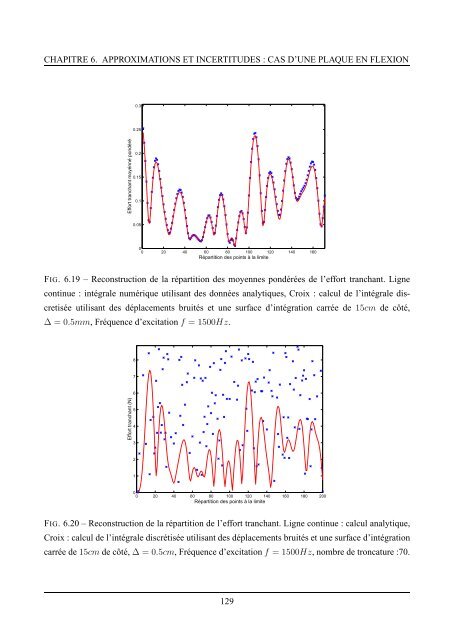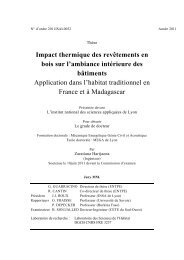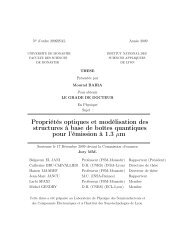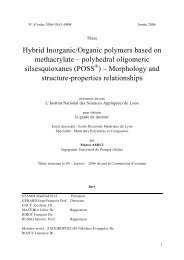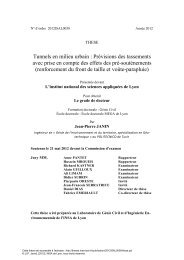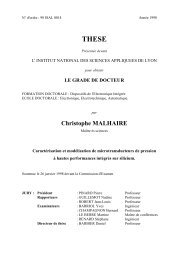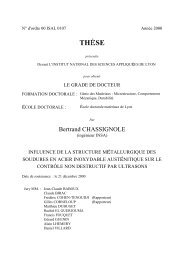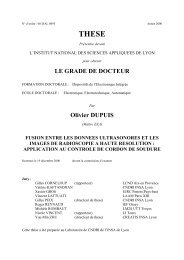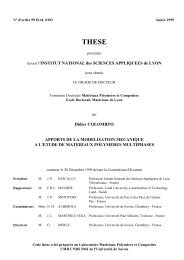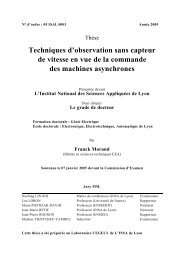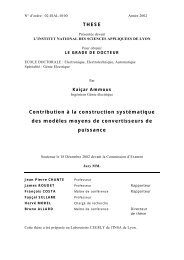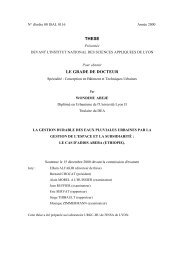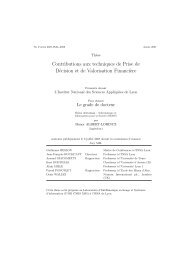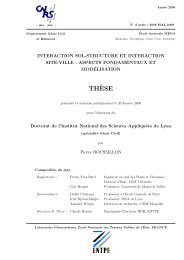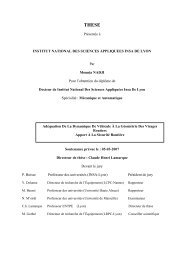Identification d'efforts aux limites des poutres et plaques en flexion ...
Identification d'efforts aux limites des poutres et plaques en flexion ...
Identification d'efforts aux limites des poutres et plaques en flexion ...
You also want an ePaper? Increase the reach of your titles
YUMPU automatically turns print PDFs into web optimized ePapers that Google loves.
CHAPITRE 6. APPROXIMATIONS ET INCERTITUDES : CAS D’UNE PLAQUE EN FLEXION<br />
0.3<br />
0.25<br />
Effort tranchant moyénné pondéré<br />
0.2<br />
0.15<br />
0.1<br />
0.05<br />
0<br />
0 20 40 60 80 100 120 140 160<br />
Répartition <strong>des</strong> points à la limite<br />
FIG. 6.19 – Reconstruction de la répartition <strong>des</strong> moy<strong>en</strong>nes pondérées de l’effort tranchant. Ligne<br />
continue : intégrale numérique utilisant <strong>des</strong> données analytiques, Croix : calcul de l’intégrale discr<strong>et</strong>isée<br />
utilisant <strong>des</strong> déplacem<strong>en</strong>ts bruités <strong>et</strong> une surface d’intégration carrée de 15cm de côté,<br />
∆ = 0.5mm, Fréqu<strong>en</strong>ce d’excitation f = 1500Hz.<br />
8<br />
7<br />
6<br />
Effort tranchant (N)<br />
5<br />
4<br />
3<br />
2<br />
1<br />
0<br />
0 20 40 60 80 100 120 140 160 180 200<br />
Répartition <strong>des</strong> points à la limite<br />
FIG. 6.20 – Reconstruction de la répartition de l’effort tranchant. Ligne continue : calcul analytique,<br />
Croix : calcul de l’intégrale discrétisée utilisant <strong>des</strong> déplacem<strong>en</strong>ts bruités <strong>et</strong> une surface d’intégration<br />
carrée de 15cm de côté, ∆ = 0.5cm, Fréqu<strong>en</strong>ce d’excitation f = 1500Hz, nombre de troncature :70.<br />
129


